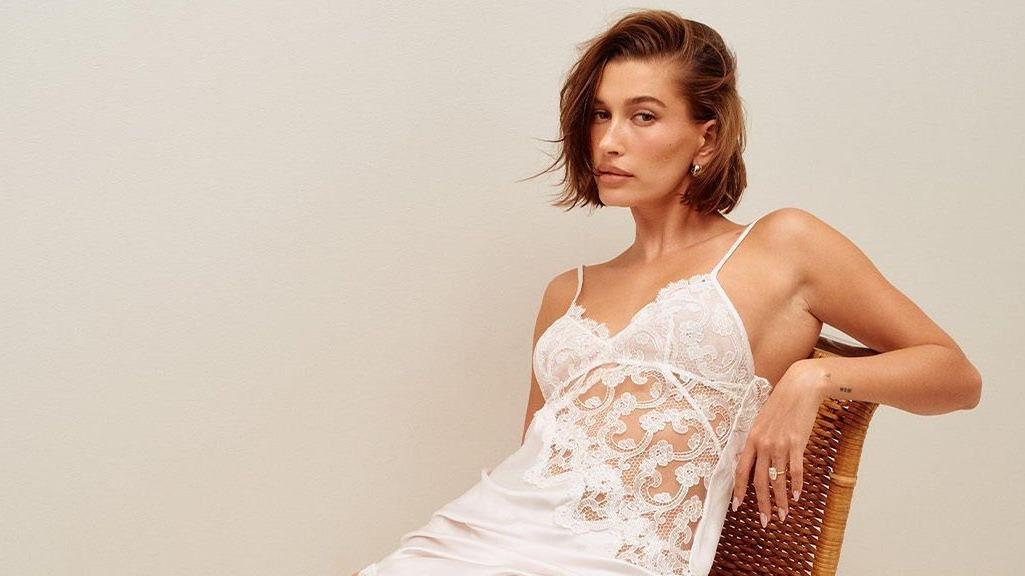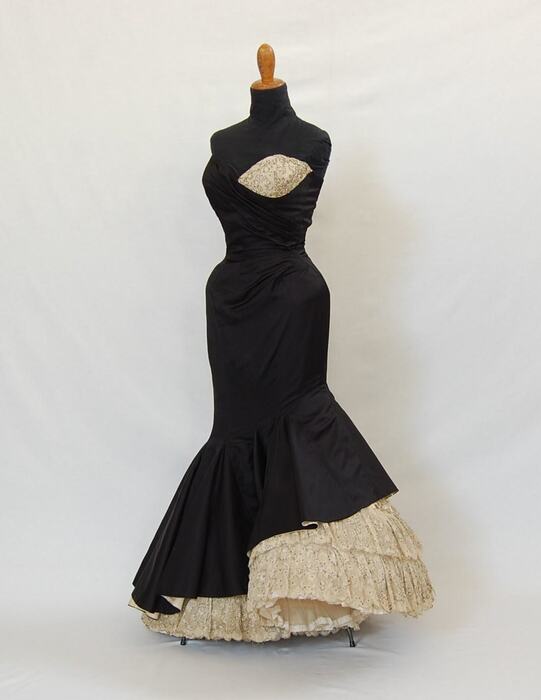Shubnum khan
09/06/2021 11:12
Clarín.com
The New York Times International Weekly
Updated 09/06/2021 11:12
At the top of my closet is a dusty box full of colorful lace underwear with the red price tags still attached.
It is among a collection of high-quality pots and a stack of
Tupperware
products
.
My mother started collecting these items when I was 18 to prepare for my marriage.
Once a year, at the Woolworths sales in Durban, South Africa, where we live, she would delve into the chaos of the underwear section and rummage through piles of loose pieces to find matching outfits that would end up in the box on the shelf. higher.
All the people in my Indian Muslim community did the same;
One aunt collected quality pots in the loft for her daughters since they were children, another stored old bottles for the vases on the wedding tables.
A third kept appliances in her garage.
Our houses were
full of promises of marriage.
Excited, I started adding things to the shelf:
a set of teacups with Chinese motifs, an expensive perfume for my future husband, a warm hat for his head in winter.
I had been waiting to fall in love since I was 12 years old and I saw Indian actors Shah Rukh Khan and Madhuri Dixit in “Dil To Pagal Hai”, when he whispered for her to get closer and closer.
I returned home, with a heavy heart, and wrote with trembling hands in my journal: "
I hope to fall in love like this."
Love, however, was not easy for me.
One by one, my three older sisters found a husband, took their boxes, and left.
I met many suitors through family, but often felt
reluctant
, even rebellious, about the whole process.
Some men were rude and said things like:
"Luckily I'm tall, otherwise our children would be short."
Others were interesting and even friendly.
But I didn't feel passion, and I would only have passionate love or nothing.
My parents were getting more and more concerned.
"You have to take this seriously," my mother said.
“No man will marry you
after the age of 25
.
You will end up wearing saints ”.
Family members urged me not to be picky, to take whatever possible while I could.
They gave me holy verses to recite and asked holy men to check if someone had cast the evil eye on me.
At family gatherings, people said they prayed for me.
"Well, they are not praying enough," I thought.
The
pressure became so strong
that I began to consider a man that I did not like but who I thought might be a good husband.
My father used to say:
"If you put two people together long enough, they
will end up falling in love
."
I wondered if that was true until, during a family holiday at a game reserve, I heard our guide tell us
about a cheetah male and a female who refused to
relate
despite being in the same place for years.
And then, at age 24, it happened:
I met a man in graduate school who was sophisticated, confident, and spoke boldly about social justice, and I was drawn to everything that had to do with him.
It was the sensation he had anticipated for so long,
the lightning bolt.
I wrote her letters, baked her desserts, and envisioned a future where I could remove the blue box, take out the tea set, and put a warm hat on her head.
But over the years, he still didn't commit.
The man I tried to give my heart to
didn't seem to love him,
until he finally married someone else.
And suddenly I found myself
30 years old and alone.
This reality stunned me so much that for a long time I couldn't leave the house.
I was ashamed for having held out so much hope.
After that, I tried to make my dreams not so big;
I only kept what I could fit in my hands.
My parents were very disappointed, but they did not try to force me to marry.
They didn't know what to do with me;
I hardly knew what to do with myself.
The box in my closet remained intact.
My mother had long stopped buying things to fill it up.
And the love, the idea, that great flash, went out.
My parents resigned themselves to a life with me at home.
In my culture it is normal, although rare, for a single woman to stay with her parents.
It would not be typical for someone like me to have an apartment or a house of their own, despite the professional success I have had as a writer, as well as the independence and spirit of adventure that I have acquired after traveling to other countries to conferences and residencies.
Now I am 36 years old and this
is not the life I expected.
I thought I would be married and pushing my kids on the swings in the park.
I thought I would know what it feels like to hold my beloved's hand as we walk down the street, or to wake up next to someone else every day.
Instead, I am startled if someone suddenly hugs me or touches me casually;
I keep my distance so I don't accidentally bump into strangers.
I long to be touched, but I no
longer know what to do
when it happens.
Sometimes a desire so intense to feel love and contact invades me that I let go of the pen and leave my desk to run towards my mother or father, whoever is closest, and I get into their arms as hard as I can and so I stay. Until
my need subsides
After so long together - especially during the pandemic, as the three of us have been our only company - my parents and I have come to understand each other on a whole new level.
We have
changed a lot
;
I am no longer the impulsive child who asked all the questions, and they are no longer the strict parents who had all the answers.
Before, my mother would put a damp cloth on my forehead when I had a fever or rub my back when I was sick, but now, little by little, I am becoming the
caregiver.
I check your blood pressure and sugar level in their blood, and fill the pill bottles.
When my father's back hurts, I read about kidney stones.
When my mother falls, I check for a concussion.
When I was a child and my knees hurt, my mother would rub them and tell me it was because I was growing up.
Now when my mother's knees hurt, I rub them and say the same thing to her.
Before, I used to say: "My father can fix anything."
Now when I find his keys or his missing glasses, he says:
"My daughter can find anything."
Sometimes they bring me into their arguments, although I try not to take sides.
When my father wanted to cut down my mother's Moringa tree because the leaves were accumulating in the pool, and she wanted to keep it, I told them to come to an agreement, so they cut only the half that was above the water.
Sometimes I'm your
advisor
, fake news checker, and meme explainer.
But above all, I am an observer and I learn what it is like to grow old with someone you have loved for almost
50 years.
My parents have become softer;
they don't lose patience or scream like before.
When they do the crossword together, they argue when they can't find the eraser and then spend the next ten minutes laughing because one of them was sitting on it.
My father sings old Indian songs to my mother, helps her hang her clothes on the clothesline, and files her heels.
My mother cooks her favorite foods, cuts her hair and toenails.
Although their relationship is routine, it never ceases to amaze me.
At 72, my father tries to
teach
my mother to swim.
He holds her by the belly and tells her to kick to stay afloat, and she yells at him to stop rushing her.
I have become part of their history, their marriage, their love.
We have our own language, unspoken looks that only we understand.
My mother shakes her head slightly if she doesn't want me to berate my father for forgetting something, and my father and I have warning faces that we make if my mother is in a bad mood.
They both listen
raptly
when I talk to them over dinner about the book I'm reading.
It is not the love I expected, but I am learning that life is greater than my expectations.
My mother recently baked cookies and we ran out of containers to store them.
"I can take my Tupperware out of the closet," I said.
"No," she said.
"We will find something else."
I did not insist.
Because using my Tupperware, taking out my box, would mean giving up love, a future with someone new, a life even bigger than this.
And we are not ready for that yet.
Shubnum Khan is a writer living in Durban, South Africa. His most recent book is entitled “How I Accidentally Became a Global Stock Photo”; (
c.2021 The New York Times Company
Look also
Modern Love: Why My Daughter Married (Temporarily) At 13
Modern Love: Living in different time zones









